The White House on Monday is hosting a meeting with the historic five Black speakers of state legislatures across the country.
Julie Chavez Rodriguez, director of the White House Office of Intergovernmental Affairs, and Domestic Policy Advisor Susan Rice will welcome Speaker Chris Welch of Illinois, Speaker Rachel Talbot Ross of Maine, Speaker Adrienne Jones of Maryland, Speaker Joe Tate of Michigan and Speaker Carl Heastie of New York.
“The Biden-Harris Administration looks forward to welcoming the historic five Black Speakers of the House from state legislatures across the country,” Rodriguez said in a statement to theGrio.
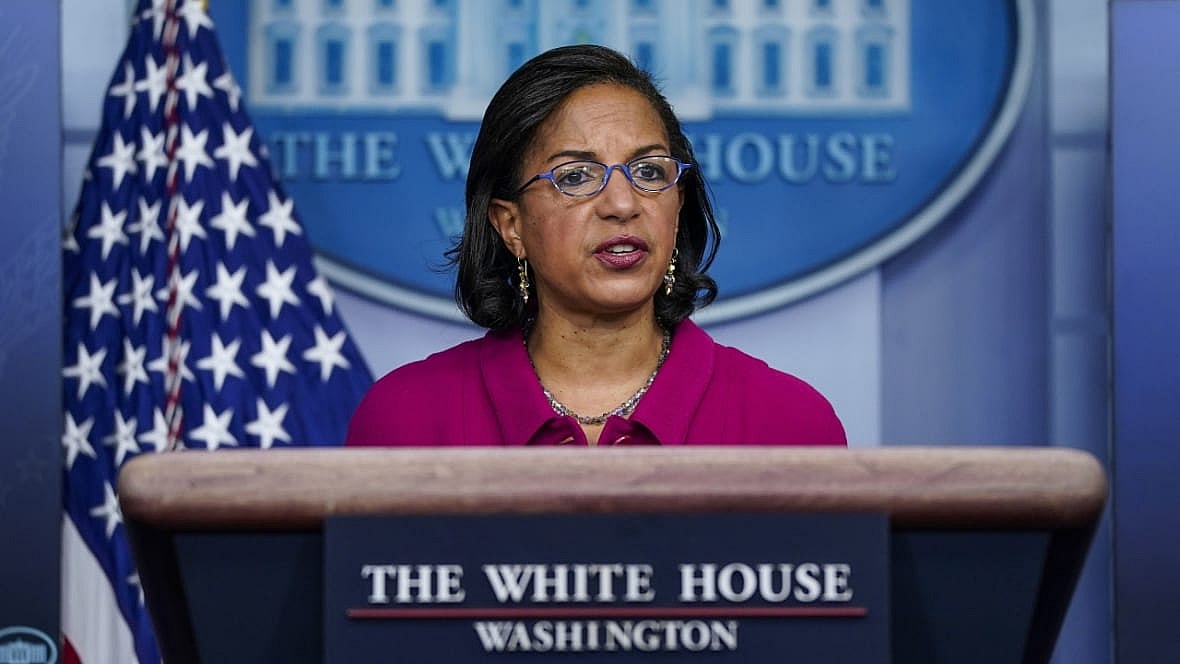
“President Biden and Vice President Harris have ushered in some of the most significant federal legislation in decades,” she continued, “and recognize the importance of a federal-state partnership to implement many of these critical laws.”
According to the White House, officials and the state speakers will discuss “common policy priorities” such as economic security, health care and housing, gun violence prevention and criminal justice reform, plus voting rights and reproductive rights.
The meeting also comes in the final days of Black History Month. On Monday, the White House will also host a Black History Month reception, and on Tuesday, Vice President Kamala Harris will host another reception to commemorate the African-American observance.
The Democratic legislators who have been invited to the White House are Black history-makers themselves: Tate, the most recent speaker to take office, became the first African–American speaker of Michigan’s House of Representatives just last month. New York’s Heastie, the longest-serving speaker out of the group, was unanimously elected the first Black speaker of the New York Assembly in 2015.
Jones became the first African-American and woman speaker of the Maryland House of Delegates in 2019. Speaker Welch, elected to the top job in 2021, is the first Black speaker of the Illinois House of Representatives, and Maine Speaker Rachel Talbot Ross became the first Black person to hold the gavel in 2022.
Some of the speakers who spoke with theGrio acknowledged the historical nature of Monday’s White House meeting.
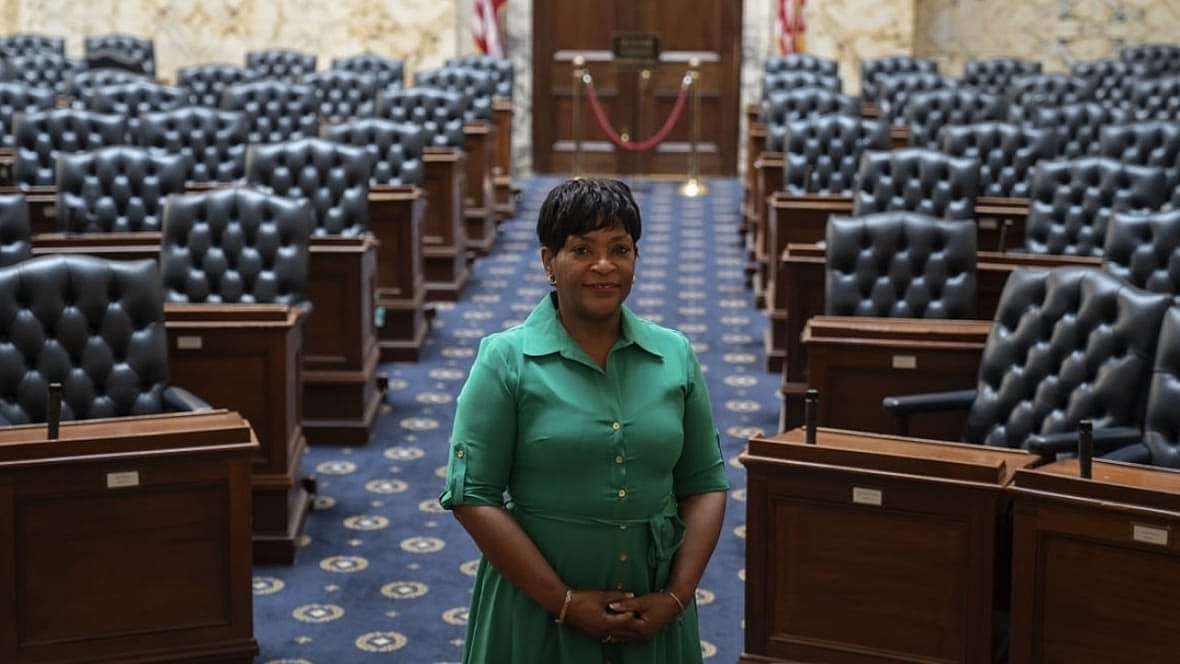
“I’m eager for this roundtable discussion with fellow history makers to, first and foremost, strengthen our working relationship with each other and this administration,” said Illinois Speaker Welch. “I’m grateful that we have the luxury of working with a president who has been a partner to Black history makers and who is fighting to protect everyone – no matter where you’re from, the color of your skin, how you choose to worship, or whom you love.
“Despite current efforts in other states to repeal our progress or hide from our history,” Welch added, “we must use our collective voices to push forward in our daunting yet noble cause to build a more perfect union.”
The convening speakers say they are grateful for what the Biden-Harris administration has been able to deliver to states across the country, particularly trillions of federal dollars from landmark legislation signed by President Joe Biden, from the COVID-19 stimulus package and Inflation Reduction Act to the CHIPS and Science Act.
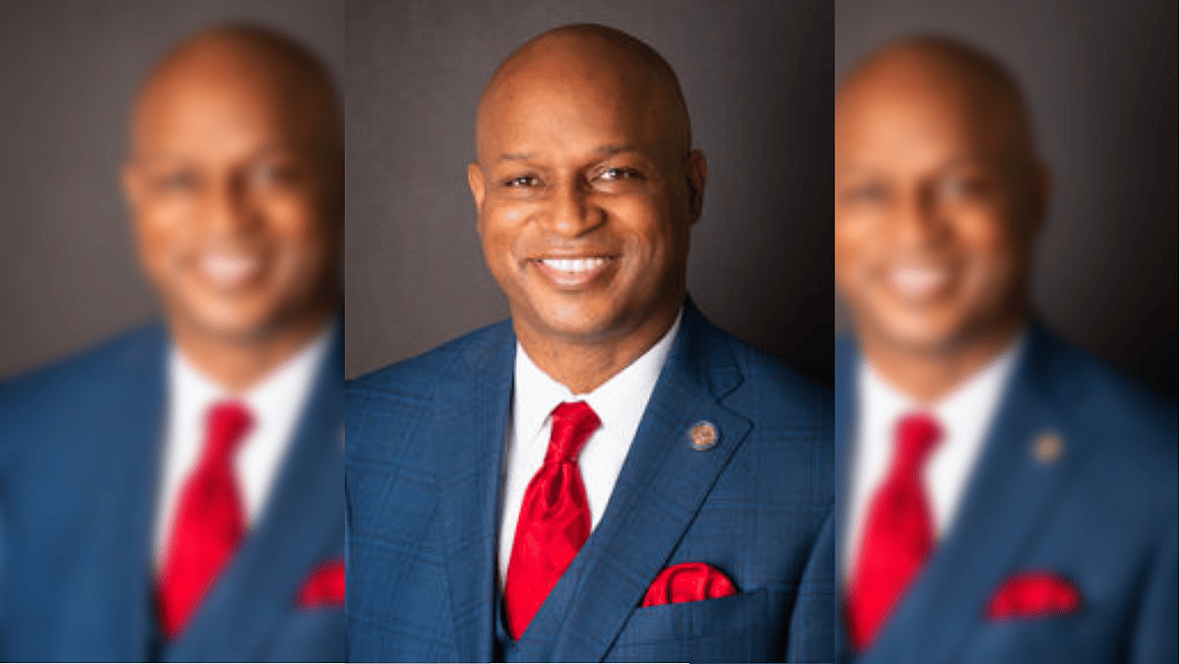
“They provided comfort, leadership [and] forward-thinking vision,” said Speaker Heastie of New York.
He said the Infrastructure Investment and Jobs Act, used to upgrade the nation’s roads, bridges and transportation, will be especially transformative for states.
“A lot of our infrastructure is aging, and so this will allow us to update our infrastructure [and] really get into the 21st century,” said Heastie. “It really showed how much they want to invest in local communities, and that’s how the country will continue to thrive — by investing in our local community.”
Just days after President Biden signed the infrastructure bill into law, Transportation Secretary Pete Buttigieg traveled to Maryland to announce $22 million in federal grant money to upgrade Baltimore’s most congested and dangerous expressways.
“It was very helpful when the transportation secretary announced about the investment for public transit and to help the east-west stretch, which had been neglected forever,” said Speaker Jones of Maryland.
“It gives you hope — unlike past administrations — that you have someone that gets it and you can communicate with. It just makes a big difference in trying to address what we hear on the state level from our constituents that we have a friend in Washington that knows all about and responds.”
Speaker Welch said in Illinois, the Inflation Reduction Act, which invests a historic $369 billion in tackling pressing climate issues and rising energy costs, will have “positive effects for years to come.”
“The entire nation is struggling with high energy costs and Illinois is not immune,” he maintained. “The Inflation Reduction Act will make it more affordable for our families to purchase energy-efficient appliances, make repairs and upgrades around their homes and save money on their utility bills each month.”
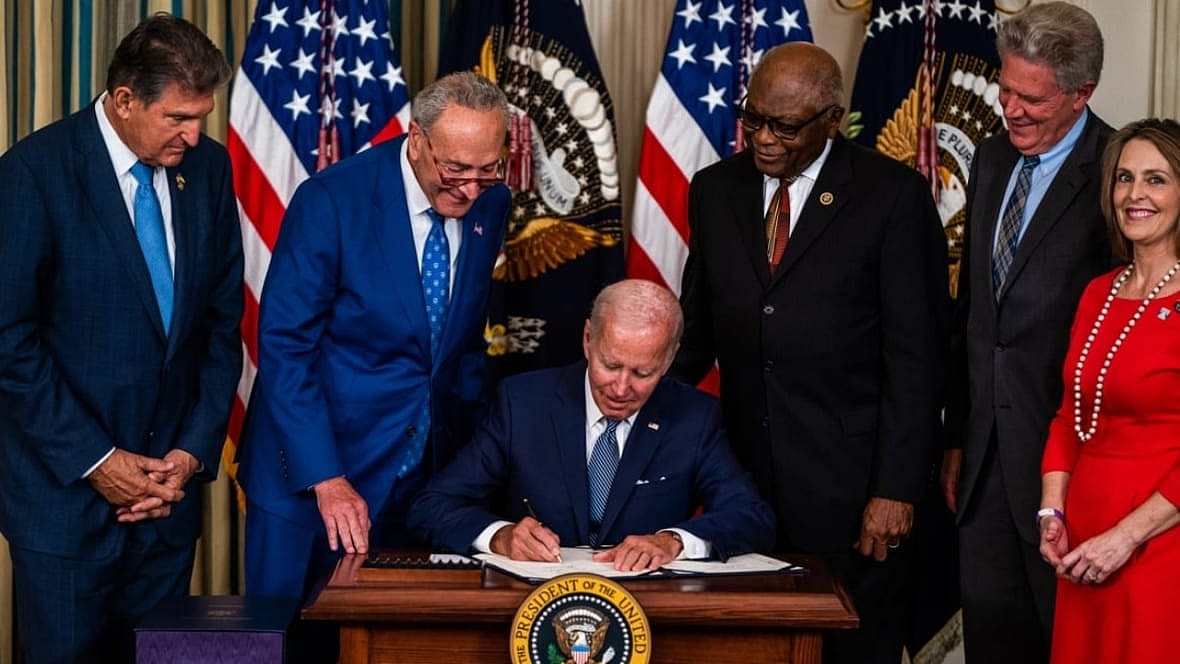
Though the federal government has showered states with needed funding to address some of the nation’s most pressing challenges, Speaker Heastie noted there are additional areas where the Biden-Harris administration can support states and cities. While the country has recovered greatly from the COVID-19 pandemic, ridership on public transportation in New York has yet to rebound, he shared, as many workers continue to do their jobs from home.
“We want there to be a robust transit system in New York,” Heastie said, “so operating aid would be great.”
The New York speaker said he would also like to see the federal government forgive some of the $8 billion in unemployment loan debt his state owes the federal government.
“The federal government was very generous in helping the states throughout the pandemic, but every state doesn’t have the same need,” Heastie asserted. “If we were able to forgive the debt, it would be a tremendous boost to small businesses who are still struggling throughout the pandemic.”
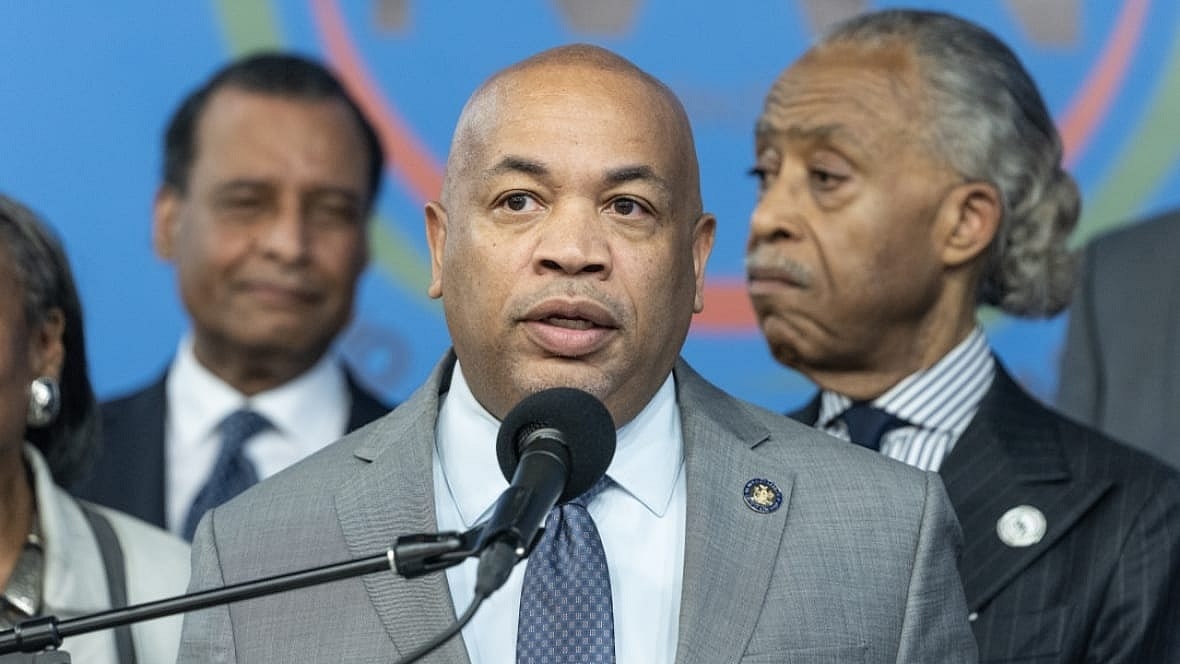
The speaker said New York could also use aid to help pay for the care of migrants sent on buses by Republican Texas Governor Greg Abbott.
While the pioneering leaders gathering Monday acknowledge there are lots of goals yet to be achieved, they applauded President Biden for what he and his administration have been able to accomplish in his first years in office.
“We’ve witnessed two years of historic job creation under our president. Our unemployment rate is the lowest it’s been in half a century, and unemployment is at near-record lows for Black and Hispanic Americans,” said Speaker Welch.
“We certainly have more work to do, but President Biden has a clear vision for our nation,” he assured, “and understands the importance of building an America we can all take pride in.”

Gerren Keith Gaynor is the Managing Editor of Politics and White House Correspondent at theGrio. He is based in Washington, D.C.
TheGrio is FREE on your TV via Apple TV, Amazon Fire, Roku and Android TV. Also, please download theGrio mobile apps today!

